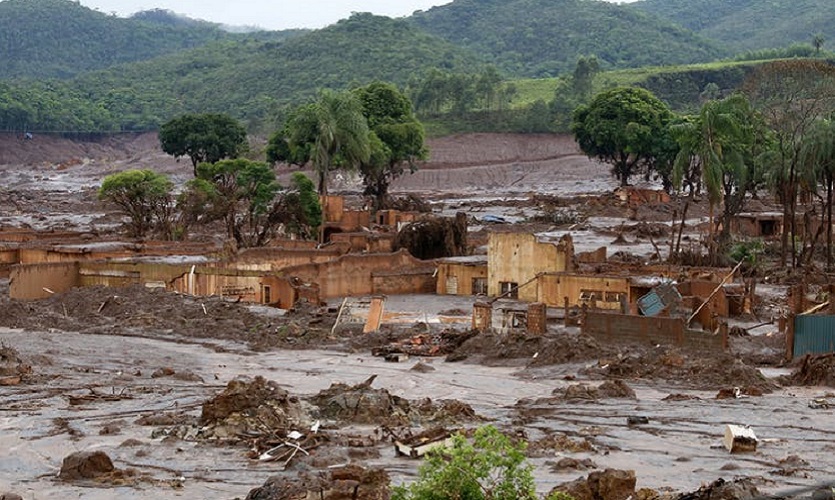Experts advising world's governments on 'cleaner' mining

PIC: This village in Brazil was buried by toxic sludge
WE all need metal but mining it is causing catastrophic environmental impacts.
Advising governments and industry on best, or better practices, is a vital job carried out by scientists such as Patrick Byrne of LJMU.
Patrick has just returned from Chile, the largest producer of copper in the world, a metal vital to the production of mobile phones, computers, motor parts and plumbing. He was a keynote speaker to international experts and mining companies, including Anglo American, at the Advanced Mining Technology Centre (University of Chile).
Dr Byrne said: “The mining industry generates enormous wealth and underpins the global economy. In Chile mining exports account for nearly 20% of GDP. But the future of mining in the country is unclear.”
The industry, he told, his audience, is facing huge challenges, including:
- Excessive use of water – a huge problem in an arid country currently in the grip of a 10-year drought.
- Huge volumes of waste – these are called ‘tailings’ and must be contained in waste ‘reservoirs. The reservoir impoundments holding back these wastes are prone to failure and numerous catastrophic tailings dam failures have devastated towns, farming areas and ecosystems in Chile.
Speaking specifically about his experiences investigating mine waste pollution, and in particular the impacts of catastrophic tailings dam failures around the world, Dr Byrne, from the School of Biological and Environmental Sciences, explained the events of 4 August 2014 in British Columbia when 4 km2 of tailings including selenium, arsenic and other heavy metals escaped into the Quesnel River Basin.
And he warned that as climate change leads to increased torrential rainfall, the integrity of dam impoundments would be ever more tested.
Patrick also advised on the need for mining companies to have detailed plans in place, rooted in scientific evidence, on how to respond to tailings dam failures. The immediate response to tailings dam failures has varied around the world with very mixed results in terms of loss of life and ecosystem recovery.
Dr Byrne’s research on mine waste impacts on the environment is funded by the Natural Environment Research Council (NERC), Scottish Environmental Protection Agency (SEPA) and the National Commission for Scientific and Technological Research (CONICYT).


